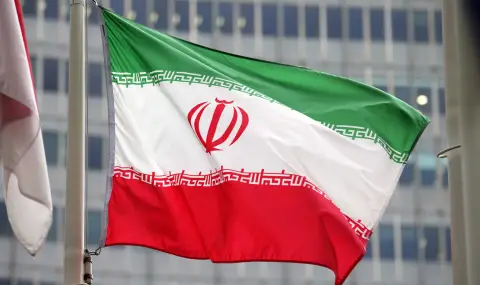The International Atomic Energy Agency (IAEA) Board of Governors has adopted resolution on Thursday urging Iran to step up its cooperation and provide "comprehensive" a report aimed at preparing the ground for new nuclear negotiations, reports "Reuters".
Britain, France, Germany and the United States, which proposed the resolution, rejected as insufficient and disingenuous Iran's latest proposal to limit its stockpile of uranium enriched to near-weapons-grade levels. According to diplomats, this move by Iran depends on the repeal of the resolution.
Iran reacted sharply to the decision and said it would retaliate with the same measures. Under previous criticism from the board, Iran has increased its nuclear activities and limited international oversight.
At the meeting, China, Russia and Burkina Faso voted against the text, while 19 countries supported it and 12 abstained.
Disputes between the IAEA and Iran
The IAEA and Iran remain at odds over a number of issues, including Tehran's refusal to explain traces of uranium found at undeclared sites and its decision to restrict access to the agency's top inspectors.
The resolution, seen by "Reuters", repeats wording from documents from November 2022, requiring Iran to explain the uranium traces and allow samples of sites if necessary. Similar requests were made in the resolution from June this year.
The new text requires the IAEA to submit by spring 2025. "comprehensive and updated assessment" on the presence or use of undeclared nuclear material. This includes a full account of Iran's cooperation with the agency.
Expectations and challenges
Western powers hope the report will put pressure on Iran for new restrictions on its nuclear activities. But they are aware that these restrictions are unlikely to reach the scale of the 2015 nuclear deal, which collapsed after the US pulled out in 2018.
With Donald Trump likely to return to the presidency in January and Iran's stockpile of enriched uranium increasing above agreed limits, it appears uncertain whether any new agreements will be reached before "cease day" in October 2025
If new restrictions are not agreed, the IAEA report could strengthen the case for activating the "rapid return" mechanism. of the sanctions provided for in the 2015 agreement.
Tense and current actions
Last week, IAEA chief Rafael Grossi visited Tehran in an attempt to persuade Iran's new president, Massoud Pezeshkian, considered a moderate, to improve the country's cooperation with the agency.
Iran already has enough material enriched to 90% - a near-weapons-grade level - for four nuclear weapons if further enriched. However, Tehran continues to deny that it intends to build nuclear weapons.
Grossi said on Wednesday that he had asked Iran to limit its stockpile of 60% of the material, which Iran had agreed to. He described it as a "concrete step in the right direction," but warned that the resolution could undermine that progress.
